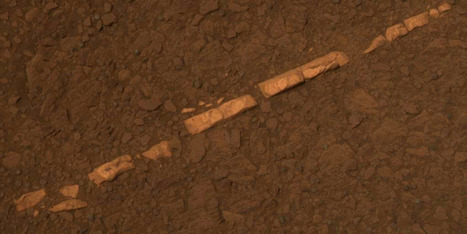On 25 November, N.A.S.A. will launch Curiosity, the largest and most complex robotic vehicle ever meant to explore Mars. Due to its size, nearly that of an S.U.V., engineering solutions had to be found to land the vehicle. Whereas past rovers were light enough to hit the ground covered in airbags, Curiosity will be airlifted to its landing spot by a 'skycrane'. Once on the Martian soil, the vehicle will look for hilly terrain where evidence of past water flows and biological compounds might be found.
What's the Big Idea?



 Your new post is loading...
Your new post is loading...
















